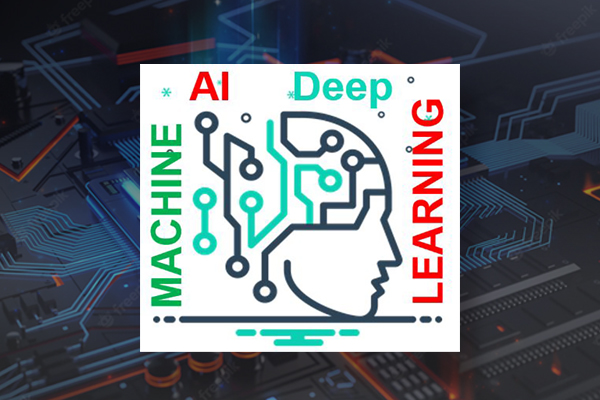Overview
Why Learn AI Chat GPT:
-Understand the principles and applications of machine learning and its impact on various industries.
-Explore the capabilities of AI Chat GPT and its potential to revolutionize communication and problem-solving.
Who Should Learn:
-Individuals interested in artificial intelligence, machine learning, and natural language processing.
-Professionals in fields such as technology, data analysis, customer service, and product development.
-Companies looking to leverage AI Chat GPT for improved customer experiences, productivity, and innovation.
Benefits of Learning:
-Gain insights into the science behind machine learning and its practical applications.
-Enhance problem-solving skills by utilizing AI Chat GPT's capabilities.
-Stay updated with the latest advancements in artificial intelligence and its potential impact on society and businesses.
Why Companies and Individuals Need to Master and Understand:
-Unlock the potential of AI Chat GPT to streamline processes, automate tasks, and improve efficiency.
-Enhance customer interactions and provide personalized experiences through AI-powered chatbots.
-Stay competitive in a rapidly evolving technological landscape by harnessing the power of machine learning.
Machine learning is a powerful tool that empowers computers to learn and make decisions based on data, without explicit programming. By mastering AI Chat GPT and understanding its impact, both companies and individuals can leverage this technology to drive innovation, improve decision-making, and create transformative experiences for customers.
为什么要学习AI Chat GPT:
-了解机器学习的原理和应用,以及其对各行各业的影响。
-探索AI Chat GPT的能力,以及它在沟通和问题解决方面的潜力,可能会引发革命性的变化。
谁应该学习:
-对人工智能、机器学习和自然语言处理感兴趣的个人。
-从事技术、数据分析、客户服务和产品开发等领域的专业人士。
-公司希望利用AI Chat GPT来改善客户体验、提高生产力和创新能力。
学习的好处:
-了解机器学习的科学原理及其实际应用。
-通过利用AI Chat GPT的能力提升问题解决能力。
-了解人工智能的最新进展及其对社会和企业的潜在影响。
为什么公司和个人需要掌握和了解:
-发掘AI Chat GPT的潜力,简化流程、自动化任务,提高效率。
-通过基于AI的聊天机器人改善客户互动,提供个性化体验。
-在快速发展的技术环境中保持竞争力,充分利用机器学习的力量。
机器学习是一种强大的工具,使计算机能够根据数据学习和做出决策,无需明确编程。通过掌握AI Chat GPT并了解其影响,无论是公司还是个人,都可以利用这项技术推动创新、改善决策,并为客户创造具有变革性的体验。
Course Content
Registration Details:
Duration: 4 hours
Workshop Format: Experiential learning and practical workshops
Minimum Participants: 20
Maximum Participants: None specified
Cost: $50 per person
Company Level Requirement: Minimum of 15 participants
Requirements: Mastery of Gmail or Yahoo! email account, basic PC operation skills, and typing proficiency.
Learning Outcome
Understand the broad concepts of machine learning, data mining, and statistical pattern recognition.
· Learn about supervised learning (generative/discriminative learning, parametric/nonparametric learning, neural networks, and support vector machines).
· Master unsupervised learning (clustering, dimensionality reduction, kernel methods).
· Gain knowledge of learning theory (bias/variance tradeoffs, VC theory, large margins) and reinforcement learning and adaptive control.
· Explore the practical applications of machine learning in various fields.
· Discuss the impact of artificial intelligence and machine learning on businesses and employment.
The course will also discuss recent applications of machine learning, such as robotic control, data mining, autonomous navigation, bioinformatics, speech recognition, and text and web data processing.
By the end of this program, participants will be able to:
· Define the terms AI & Machine Learning.
· Explain the history of AI.
· Describe the effectiveness of AI and machine learning.
· Understand a wide variety of learning algorithms.
· Illustrate the AI industry's deep dive.
· Define the role of data and perform data analysis.
· Explain machine learning frameworks and their application in AI.
· Identify different types of machine learning algorithms and their uses.
· Explore real-world applications of machine learning and understand how AI is used in computer applications.
· Recognize the potential of AI to enhance human interaction.
· Define the roles of robots.
· Consider the future implications of AI.
· Adapt to emerging occupations in the field of AI.
· 理解机器学习、数据挖掘和统计模式识别的广泛概念。
· 学习监督学习(生成式/判别式学习,参数化/非参数化学习,神经网络和支持向量机)。
· 掌握无监督学习(聚类、降维、核方法)。
· 了解学习理论(偏差/方差权衡;VC理论;大边界)和强化学习与自适应控制。
· 探索人工智能和机器学习在各领域和应用中的实际应用。
· 研究人工智能和机器学习对未来业务和就业的影响。
该课程还将讨论机器学习的最新应用,如机器人控制、数据挖掘、自主导航、生物信息学、语音识别以及文本和网络数据处理等。
在课程结束时,学员将能够:
· 定义人工智能和机器学习的概念。
· 解释人工智能的历史。
· 描述人工智能和机器学习的有效性。
· 理解多种学习算法。
· 研究人工智能产业的深度。
· 确定数据的角色并进行数据分析。
· 解释机器学习框架并在人工智能中应用。
· 识别不同类型的机器学习算法及其应用。
· 探索机器学习的应用,并了解计算机应用中的人工智能应用。
· 借助人工智能改善人机交互。
· 定义机器人的角色。
· 考虑人工智能的未来发展。
· 探索新的人类职业与人工智能的融合。

